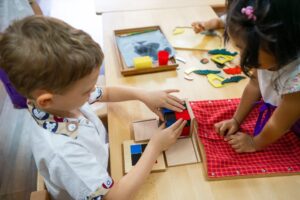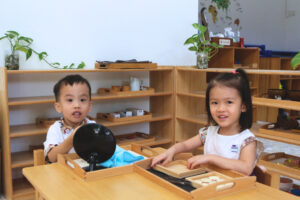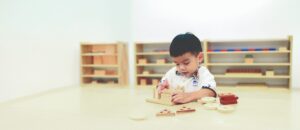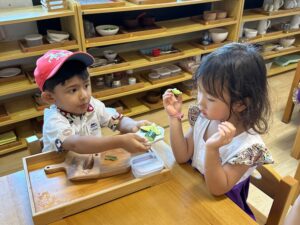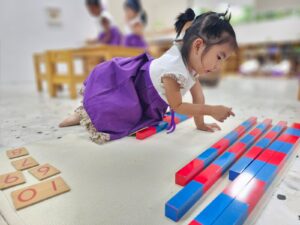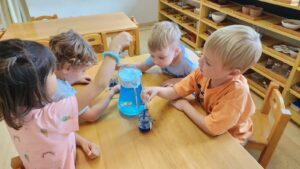At House on the Hill, we believe that some of the most meaningful education happens not just in the classroom, but under trees, beside gardens, and along winding paths. Rooted in the Montessori philosophy, we see learning through nature as essential to child development, offering young learners authentic experiences that foster curiosity, independence, and joy.
For us, learning outdoors isn’t just a break from routine. It is the routine. Every day, our children engage in outdoor learning activities that strengthen their bodies, spark their minds, and connect them with the natural world.
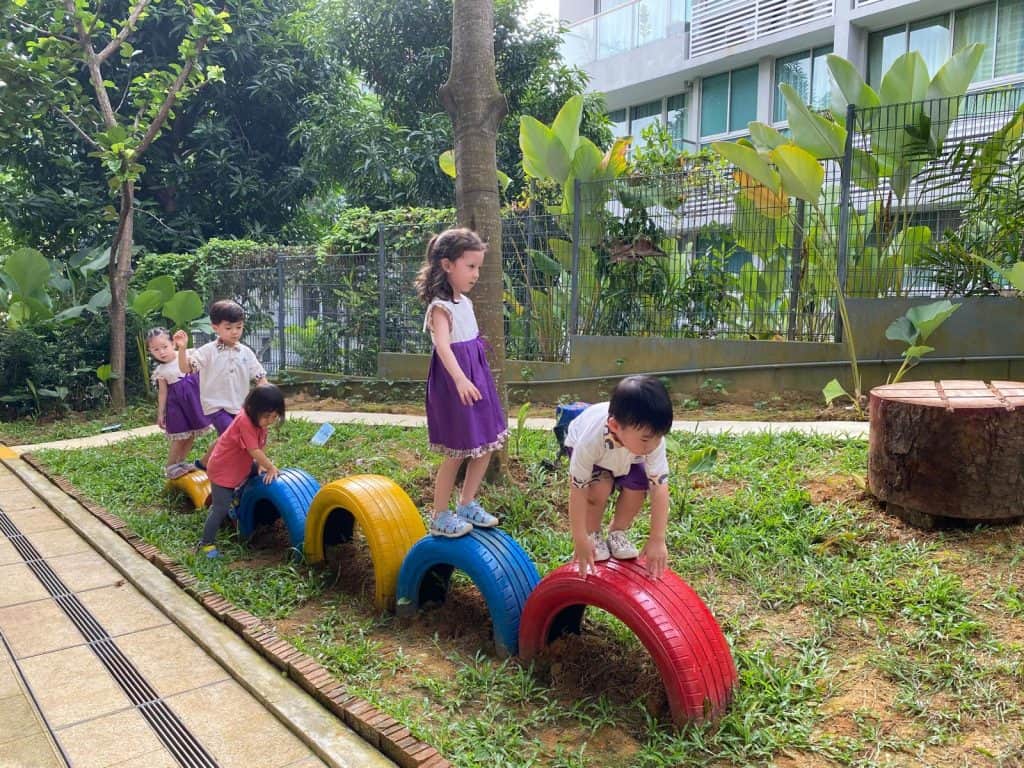
Dr. Maria Montessori famously wrote:
“There must be provision for the child to have contact with nature; to understand and appreciate the order, the harmony and the beauty in nature.”
In a Montessori setting, nature is seen as a vital partner in education, especially in the early years. As a nature-based preschool, we recognise that outdoor environments support the whole child:
-
- Physically, by encouraging movement and coordination
- Socially, by fostering collaboration and peaceful problem-solving
- Emotionally, by cultivating mindfulness and calm
- Cognitively, by inspiring observation, experimentation, and discovery
At House on the Hill, children participate in a wide range of outdoor learning activities, each aligned with key Montessori principles.
Here are a few examples:
Gardening
Children plant, water, weed, and harvest. They learn first-hand about life cycles, surroundings, and sustainability.
Helps children focus on: Science, responsibility, patience, and care for living things
Insect and Animal Observation
With magnifying glasses and quiet observation, children study ants, butterflies, and birds.
Helps children focus on: Biology, empathy, close observation
Nature Walks & Journaling
Children explore our grounds, collect natural objects, and record their findings.
Helps children focus on: Scientific thinking, language, mindfulness
Practical Life Work Outdoors
Sweeping, raking and washing plant pots are real tasks that nurture independence and motor skills.
Helps children focus on: Coordination, contribution, responsibility
Natural Loose Parts Play
Children build, sort, and invent using branches, rocks, pinecones, and more.
Helps children focus on: Creativity, problem-solving, collaboration
Art in Nature
Children use mud, leaves, or flowers to create ephemeral or permanent artworks.
Helps children focus on: Sensory exploration, expression, aesthetics
Weather Tracking
Children observe the sky, record temperatures, and talk about changing weather patterns.
Helps children focus on: Earth science, numeracy, data collection
Mindfulness in Nature
Quiet nooks offer a place to sit, listen, and breathe deeply.
Helps children focus on: Self-regulation, peace, connection to nature
In Montessori education, freedom and responsibility go hand in hand. The same applies to learning through nature. Outdoors, children have the freedom to choose their activities, move at their own pace, and follow their interests within gentle boundaries that promote safety and mutual respect. This approach builds confidence, focus, and autonomy, all while deepening children’s relationship with the natural world.
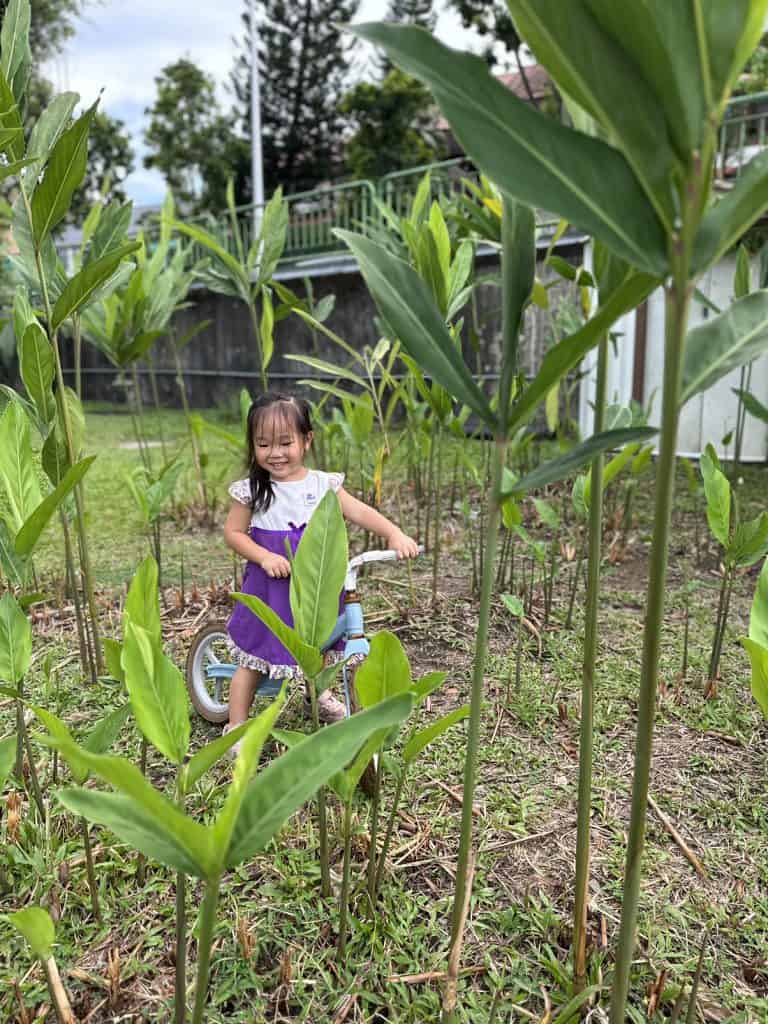
Outdoor learning for preschoolers isn’t just beneficial, it’s foundational. Time in nature has been shown to:
-
- Improve concentration and self-regulation
- Boost physical health and immunity
- Reduce stress and anxiety
- Encourage environmental stewardship from an early age
At House on the Hill Montessori Pre-School, we know that the earth is one of a child’s first and most powerful teachers. Through intentional, joyful outdoor learning activities, we nurture confident learners who are deeply engaged with the world around them.
In choosing learning through nature, we give children more than knowledge. We give them a foundation for lifelong growth, discovery, and care for the planet.

